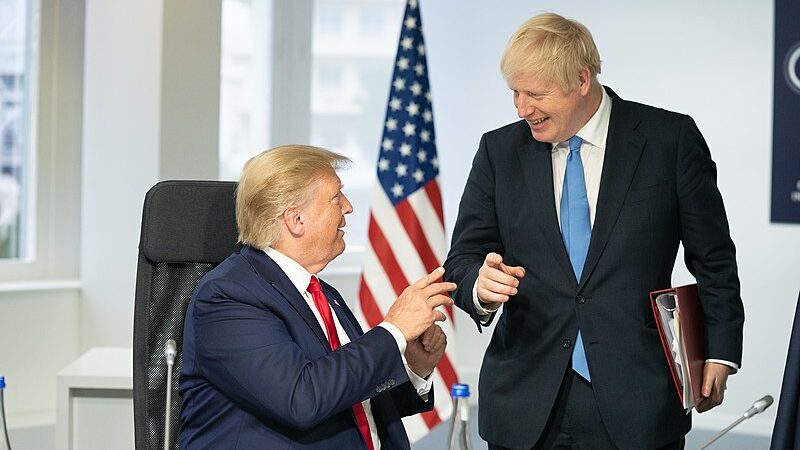
I am not going to repeat the well-known case against a trade deal with the US. The risks to public health, animal welfare, the NHS and public services are familiar to most LabourList readers. But there are other reasons for which Labour should oppose the deal.
A trade deal offers no tangible benefits – no jobs, no great boost to economic growth or productivity. Political discourse on trade assumes the opposite: that more trade makes everyone better off. This idea is based on a series of myths, and now is a teachable moment when Labour can set out the truths about the economic impact of trade.
Myth: trade creates jobs
If a company sells more, it can employ more workers. If a country sells more, there will be more export jobs but not more employment overall. Some sectors will recruit staff as they expand to supply exports. Other sectors will contract as their production is supplanted by imports.
Trade will change the patterns of employment – geographically, by sector and by skills. A sharp change in trading conditions, which could follow a trade deal, will disrupt existing patterns of employment, causing a short-term rise in unemployment. But in the long run the level of employment depends on other factors, not trade.
As Nobel Prize-winning economist Paul Krugman put it: “When the US Secretary of Commerce returns from a trip abroad with billions of dollars in new orders for US companies, he may or may not be instrumental in creating thousands of export-related jobs. If he is, he is instrumental in destroying a roughly equal number of jobs elsewhere in the economy.”
Myth: exports make us richer
This is probably the oldest trade myth. Back in 1776, The Wealth of Nations by Adam Smith mocked the belief that foreign trade made the country richer because it brought gold and silver into the country.
If a company sells more, it makes more money and is better off. Today if a country sells more, it acquires more foreign exchange – dollars, euro, etc. What can you do with foreign exchange? The only answer is buy stuff priced in dollars, euro, etc – mostly imports. The real value of exports is to pay for imports.
Truth: trade can increase productivity
There are real benefits to be had from trade. The international division of labour and the diffusion of technology can increase the country’s potential output. When the same level of employment produces higher output, we say productivity has increased.
In opposing a US trade deal, Labour should emphasise that we are not anti-trade, but that we should aim for trading relationships that significantly enhance productivity. Our trade policy should coordinate with our industrial policy with exactly this aim.
Myth: our prosperity depends on trade deals
If we agree that trade has benefits, do we need trade deals? In fact, a great amount of trade takes place without bilateral trade deals. The US tops the charts of export partners, with 19% of UK exports going there in 2018, and it is number two for imports, with 11% of imports that same year – all without a deal.
Like most such agreements, the US deal will have minimal impact on the country’s prosperity. The Department for International Trade has published its assessment of the value of a deal, which shows GDP rising in the long run by as much as 0.16%.
To put that in context, UK GDP was around £2,200bn in cash terms before the pandemic. The DIT thinks a US trade deal will raise GDP by around £3.4bn over the next 15 years. By contrast, 15 years of modest economic growth – say 1.5% a year – would lift GDP to £2,705bn. Adding £3.4bn is not such a big deal. If we want to know what does drive rising prosperity, we will have to look elsewhere than trade deals.
By opposing the US deal entirely, Labour has the chance to shift the discussion of trade towards firmer ground where the costs and benefits of future deals can be assessed. Does a speculative 0.2% of GDP in the distant future outweigh the costs of short-term disruption, limitation to policymaking on public health, product standards, animal welfare, innovation, environmental rules and public services? We should welcome trade with the US, but a trade deal is not worth it.




More from LabourList
Turning the page? Labour’s recovery in the polls show a path to 2029 victory
Restoration announce recommendations for NEC candidates
‘Factionalism at the top is weakening Labour – and handing a gift to Reform’